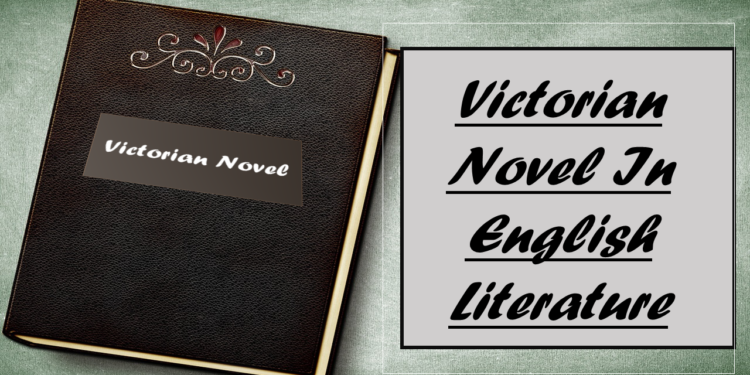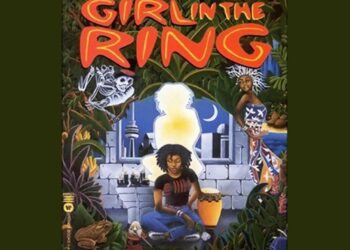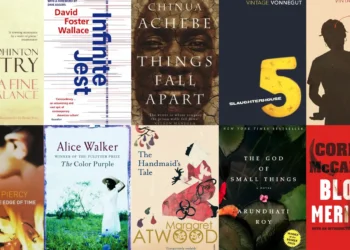Victorian Novel In English Literature: Novels and Politics
The Victorian era is known for its rich literary tradition, particularly in the realm of novels. This period, spanning from 1837 to 1901, saw the rise of many celebrated authors who explored various themes and genres. One prominent aspect of Victorian novels was their engagement with politics. These novels not only entertained readers but also served as a platform for social commentary and critique. In this article, we will delve into the intricate relationship between Victorian novels and politics, examining how these works reflected and influenced the political landscape of the time.
Early Life and Education of Victorian Novelists
To fully comprehend the political leanings of Victorian novelists, it is essential to understand their backgrounds and experiences. Many of these authors hailed from diverse social and educational backgrounds, which significantly shaped their perspectives. For instance, Charles Dickens, one of the most renowned Victorian novelists, grew up in poverty and witnessed firsthand the harsh realities of the working class. His experiences fueled his desire to address social inequality through his novels, such as “Oliver Twist” and “Hard Times.”
Similarly, Elizabeth Gaskell, another notable Victorian novelist, was deeply influenced by her interactions with the working-class communities in Manchester. Her novel “North and South” explores the stark contrast between the industrial North and the pastoral South, highlighting the social and economic disparities prevalent during the time. These authors’ personal experiences and education greatly informed their political inclinations, resulting in novels that portrayed the social and political issues of the Victorian era.
Victorian Novels and the Civil Rights Movement
The Victorian era witnessed significant social and political changes, including the fight for civil rights. Although the Civil Rights Movement is often associated with the United States in the 20th century, similar movements for equality and justice were occurring in Victorian England. Many Victorian novels, therefore, became a medium through which authors addressed these pressing issues and advocated for change.

In Charlotte Brontë’s novel “Jane Eyre,” the protagonist’s struggle for independence and equality mirrors the fight for women’s rights during the Victorian era. Brontë’s portrayal of Jane’s determination and resilience served as a powerful commentary on the limited opportunities available to women at the time. Similarly, George Eliot’s novel “Middlemarch” explores the societal constraints imposed on women and the need for their emancipation. Through these novels, Victorian authors shed light on the challenges faced by marginalized groups, urging society to recognize their rights and fight for their equality.
Key Events and Achievements in Victorian Literature
The Victorian era witnessed a multitude of key events and achievements in the realm of literature. From the publication of groundbreaking novels to the establishment of literary societies, these events played a pivotal role in shaping the literary landscape of the time.
Also Read-
One significant event was the publication of Charles Dickens’ novel “A Tale of Two Cities” in 1859. Set against the backdrop of the French Revolution, this novel explores themes of social injustice and revolution. Dickens’ vivid portrayal of the plight of the working class and his critique of the ruling elite resonated with readers, making “A Tale of Two Cities” a landmark novel in Victorian literature.
Another noteworthy achievement was the establishment of the Browning Society in 1881. Named after the famous Victorian poets Robert Browning and Elizabeth Barrett Browning, this society aimed to promote the study and appreciation of their works. The Browning Society not only celebrated the achievements of these poets but also provided a platform for literary discourse and intellectual exchange. Such societies fostered a sense of community among Victorian authors and encouraged the exploration of political themes in their works.
Famous Speeches and Quotes from Victorian Novelists
Victorian novelists were not only masters of the written word but also possessed a knack for delivering powerful speeches and crafting memorable quotes. These speeches and quotes often encapsulated the essence of their political beliefs and resonated with audiences.
One such example is Charles Dickens’ famous quote from “A Tale of Two Cities”: “It was the best of times, it was the worst of times.” This quote succinctly captures the stark dichotomy between the privileged and the oppressed, reflecting Dickens’ critique of social inequality.What defines a Victorian novel?, What are the main features of Victorian novel?, What were the types of novels in the Victorian age?, What are the major themes of Victorian Period?,
Similarly, Oscar Wilde, a prominent Victorian playwright and novelist, delivered a thought-provoking speech titled “The Soul of Man under Socialism” in 1891. In this speech, Wilde advocated for individualism and equality, critiquing the capitalist system that perpetuated social divisions. His eloquent words continue to inspire readers to question societal norms and strive for a more just and equitable society.
Impact of Victorian Novels on Society
The impact of Victorian novels on society cannot be overstated. These works captured the attention and imagination of readers from all walks of life, influencing their perceptions and attitudes towards various social and political issues.
For instance, Thomas Hardy’s novel “Tess of the d’Urbervilles” shed light on the double standards and moral hypocrisy prevalent in Victorian society. The tragic story of Tess, a young woman condemned for her past, prompted readers to question the rigid moral codes that governed their lives. Hardy’s novel sparked discussions on the treatment of women and the need for societal reform.
Moreover, Victorian novels played a crucial role in raising awareness about the plight of the working class. Authors like Charles Kingsley, in his novel “Alton Locke,” exposed the harsh working conditions and economic exploitation faced by the laboring masses. These novels humanized the struggles of the working class, fostering empathy and inspiring social reform movements.
The Legacy of Victorian Novels
The legacy of Victorian novels extends far beyond the era itself. These works have stood the test of time, continuing to captivate readers and scholars alike. The themes explored in Victorian novels, such as social inequality, gender roles, and political corruption, remain relevant in contemporary society.

Moreover, the influence of Victorian novels can be seen in subsequent literary movements. Modernist authors, such as Virginia Woolf and James Joyce, were heavily influenced by the introspective and psychological depth found in Victorian novels. The legacy of these novels is evident in the works of countless authors who continue to draw inspiration from the social and political commentary of the Victorian era.
Commemorations and Celebrations of Victorian Novels
The enduring popularity of Victorian novels has led to numerous commemorations and celebrations of these works. Literary festivals, academic conferences, and exhibitions are held around the world to honor the contributions of Victorian authors and explore their enduring relevance.
One such event is the Dickens Festival held annually in Rochester, England. This festival celebrates the life and works of Charles Dickens, with parades, performances, and literary discussions. The festival attracts enthusiasts from across the globe, fostering a sense of community and appreciation for Victorian literature.What defines a Victorian novel?, What are the main features of Victorian novel?, What were the types of novels in the Victorian age?, What are the major themes of Victorian Period?,
Additionally, academic conferences dedicated to Victorian novels provide a platform for scholars to present their research and engage in intellectual discourse. These conferences promote the study and understanding of Victorian literature, ensuring that these works continue to be appreciated and analyzed by future generations.
Conclusion
Victorian novels played a vital role in shaping the political landscape of the era. These works served as powerful platforms for social commentary and critique, shedding light on the pressing issues of the time. From the struggle for civil rights to the exploration of social inequality, Victorian authors fearlessly delved into politics through their novels. The impact of their words continues to resonate, inspiring readers to question societal norms and fight for a more just and equitable world. As we commemorate and celebrate the legacy of Victorian novels, let us not forget the profound influence they have had on literature and society as a whole.What defines a Victorian novel?, What are the main features of Victorian novel?, What were the types of novels in the Victorian age?, What are the major themes of Victorian Period?,
















